Professional CBS athletes’ advice on time management

Therese Taabbel, kitesurfer and BSc student in Business Administration at CBS.
Professional kitesurfer Therese Taabbel and professional Obstacle Course Race athlete Leon Kofoed Andersen have both learned to juggle CBS with their sports careers. How do they manage?
Being an average student balancing university, friends, family, hobbies and exercise can be difficult enough. Imagine adding the life of a professional athlete to the list.
For professional kitesurfer and bachelor’s student in Business Administration Therese Taabbel, getting help from the guidance counselors at CBS made it much easier. She knew that she could not finish her bachelor’s degree in three years due to training and competitions. So they helped her put together a realistic schedule that would have her graduating in four years initially, which was later changed to five.
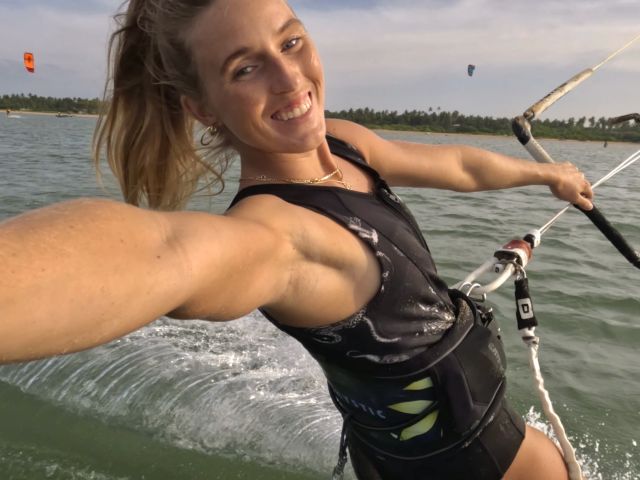
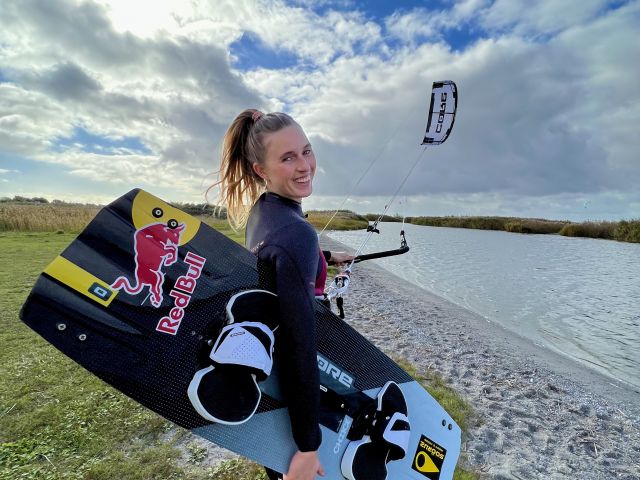
“I have taken a lot of reexaminations to get enough flexibility around my training and competitions. When I could, I chose online elective courses that I could do from all around the world,” she explains. She is currently ranked fifth among kite surfers worldwide and has been Danish champion five times in kitesurfing and twice in wakeboarding.
One of the most challenging aspects for Therese Taabbel has been making group exercises work since she travels so much. She explains that she has always been open and upfront about how much time she spends on training, which has helped her find groupmates that were understanding. She thinks this is an important strategy if you have limited time on your hands:
“I’m not afraid to ask others for their notes or tell the lecturers that I can’t make it to all the classes and then ask them what I should focus on,” she says.
One of the most challenging aspects for Therese Taabbel has been making group exercises work since she travels so much. She explains that she has always been open and upfront about how much time she spends on training, which has helped her find groupmates that were understanding. She thinks this is an important strategy if you have limited time on your hands:
“I’m not afraid to ask others for their notes or tell the lecturers that I can’t make it to all the classes and then ask them what I should focus on,” she says.
“Work first, play later”
For professional Obstacle Course Racing athlete Leon Kofoed Andersen, also a guest lecturer and former student of Managerial Economics, the motto: “Work first, party later” was crucial when studying at CBS.
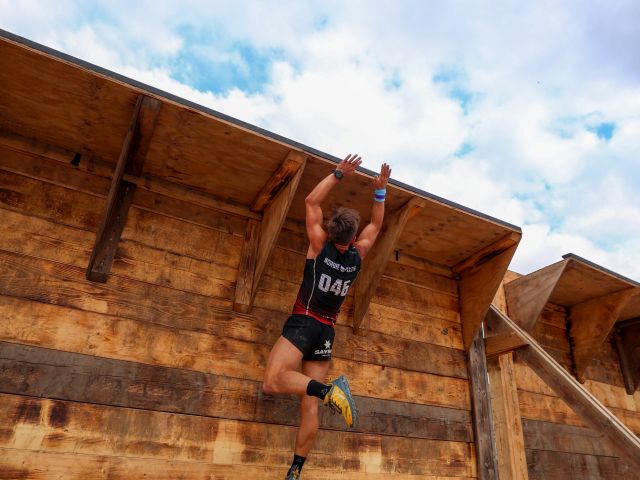
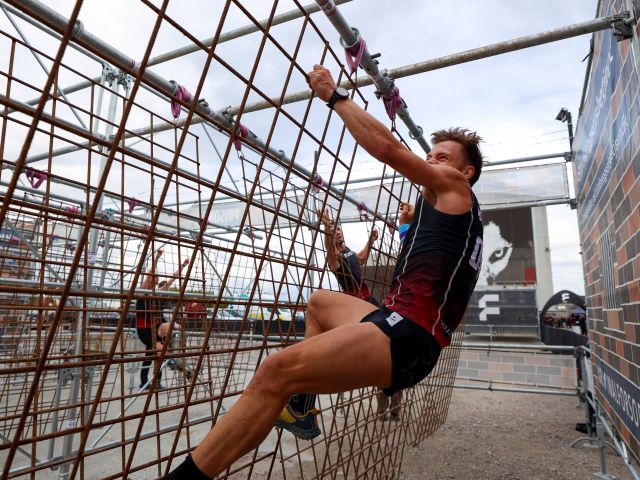
“Work was university, and partying was my sport. I found when I was doing my master’s degree that it was more and more difficult to focus on complex problems due to my mother being sick with cancer. Sometimes I could only study for 15 minutes, sometimes eight hours, and then I fitted in training around that,” he explains.
He admits that the method worked well in hindsight, but as he was doing it, he found it hard not to beat himself up on the days that he was only able to concentrate for 15 minutes. Today, he does not organise his time according to work and partying:
“Today my primary job is to be an athlete. Training always has top priority and then I have to fit everything in according to that,” the four times European Champion and three times World Champion in OCR says.
Working as a guest lecturer at CBS does not actually feel like work to him though:
“I love meeting the students and hearing what interests them. I teach every other week during the semester, and it’s easy to fit into my schedule of training and working on my business, OCR Training Denmark.”
CBS sets you up to run your own sports business
Neither kitesurfing nor OCR are large sports with lots of sponsors. Both Therese Taabbel and Leon Kofoed Andersen have had to find their own way of making money, including finding sponsors. Leon Kofoed Andersen has started the company OCR Training Denmark selling OCR training lessons as well as equipment and guides to help improve your performance.
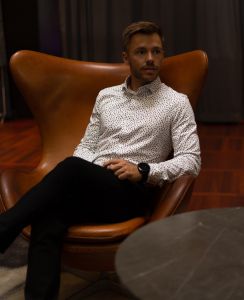
Leon Kofoed Andersen, Obstacle Course Racing athlete Leon Kofoed Andersen, guest lecturer and former student of Managerial Economics at CBS. Photo: Mikkel Lindhardt.
When asked whether he can use anything he learned at CBS in his business, he laughs and asks: “Honestly? Not much.”
He does, however, feel that CBS has changed since he graduated and is now better suited for start-ups. And says he has been able to use the whole business mindset when trying to attract sponsors.
“I already knew the financial language and understood that I needed the sponsors to understand what they gained from sponsoring me. I think this made a big difference, as I didn’t simply expect them to sponsor me but knew that I had to give something in return,” he says.
For Therese Taabbel, classes in social media and brand awareness have been invaluable. In some classes, she has been able to use herself as a case, in others she used one of her sponsors.
“I tried to find an angle for my bachelor’s thesis so that I could write about myself, but I couldn’t really find a suitable one,” she explains as an example of how she continuously tries to find a way to merge university with her sports career.
“I compete to reach my own top level”
When Therese Taabbel finishes her degree in June, she will take a year off to focus on kitesurfing. Her goal is to rank third in the world in 2023 and to win the Danish Championship in the men’s league (where women can participate). So far, she has ‘only’ won the women’s league.
Later, she wants to combine being an athlete with taking a master’s degree at CBS.
“I have been thinking of starting my own company or becoming a manager for other athletes. I think my degree from CBS puts me in a great position as an athlete since I have something to fall back on – and besides, I like the academic stimuli I get from studying at CBS,” Therese Taabbel says.
I have been thinking of starting my own company or becoming a manager for other athletes. I think my degree from CBS puts me in a great position as an athlete since I have something to fall back on – and besides, I like the academic stimuli I get from studying at CBS.
Therese Taabbel, kitesurfer and student at CBS
Leon Kofoed Andersen’s goal for the future is to win back his title in the European Championship in 2023. He was the champion in 2018 and 2019 and by default in 2020 and 2021, since the European Championship was canceled due to COVID. Last year, he lost the title, however, when he took a chance on the last stretch and ended up in 12th place instead of 2nd where he had been for most of the race.
“I’d rather take the chance and end up in 12th place than play it safe and come second. For me, it’s not about the title but about reaching my top level, and I don’t feel I’ve done that yet. My fight is with myself,” says Leon Kofoed Andersen.


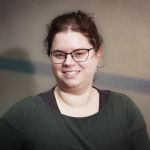
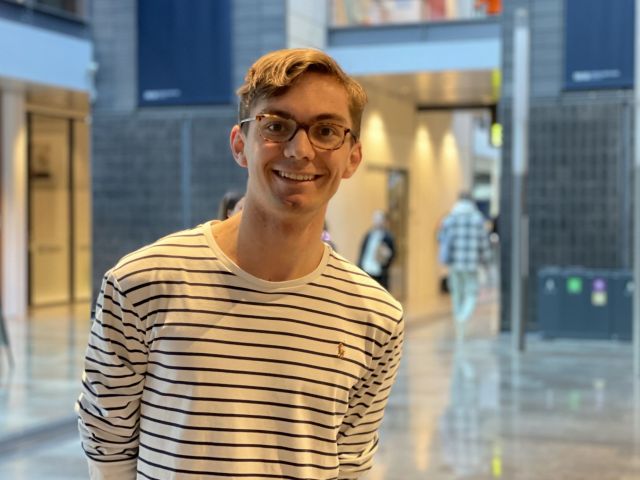





























































































































Comments